
Recapping Quirks Chicago
April 12, 2024
A Breakdown of IA Annual with Mary Draper
April 17, 2024April marked the six-month point in the ongoing conflict between Israel and the Palestinian militant group Hamas. This conflict was polarizing when it started and has only gotten more so. In our latest round of research-on-research, we explored how empathy has evolved over the last six months.
Since our initial survey fielded in 2023, public sentiment has shifted regarding the Israel/Palestinian conflict, with empathy towards Israel dropping six percentage points, while empathy for Palestine rose by 4%. This change suggests a shift in public perception, possibly influenced by recent events or media coverage.
Additionally, the percentage of respondents who don't empathize with either side saw a minor increase, increasing by 2%. This modest uptick implies a growing ambivalence or lack of clear-cut sentiment among the public.
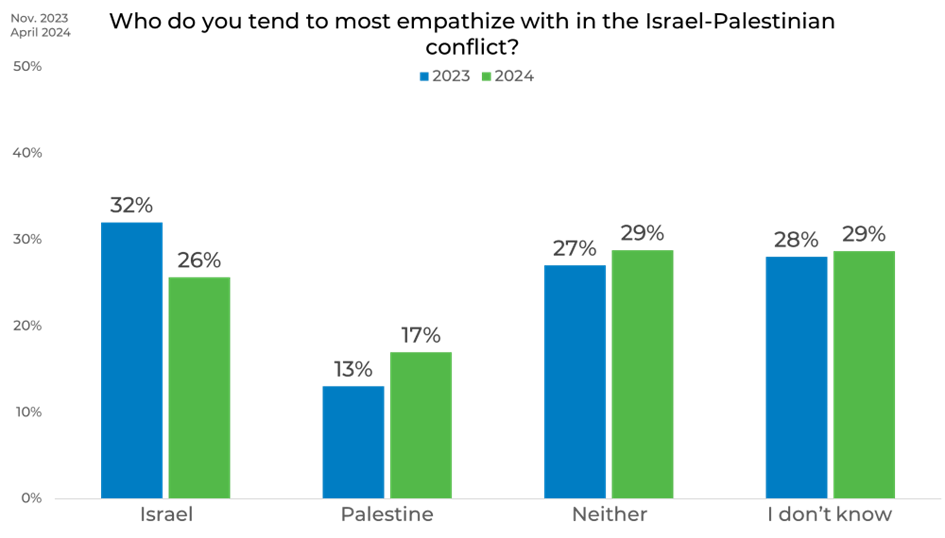
Gender
Diving into the gender breakdown of the data, we observe notable changes in empathy levels between males and females in 2023 compared to 2024. For males, empathy towards Israel decreased by 7%, while empathy towards Palestine increased by 5%. The percentage of males who don't empathize with either side remained unchanged.
Conversely, females showed a more considerable change in results when comparing 2023 to 2024. Females' empathy for Israel dropped by 7%, whereas their empathy toward Palestine increased by 3%. The percentage that doesn't empathize with either side increased by 3%. These gender-based insights highlight a reduction in empathy for Israel and an increase for Palestine, albeit with different levels of change.
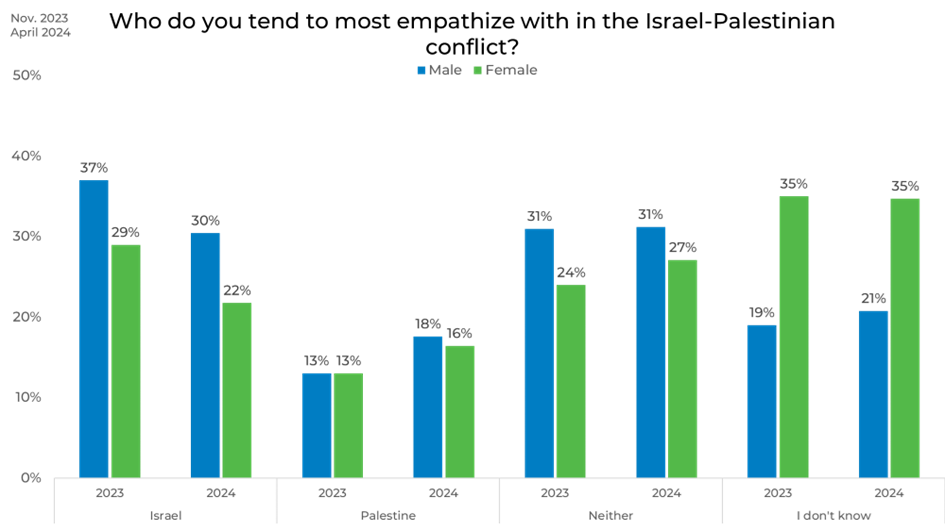
Age
Exploring the data by age group, we found that those aged 18 to 24, while already having the highest empathy towards Palestine at 29% in 2023, saw an increase of 5%. Their empathy towards Israel saw a slight decrease.
We found a rather significant shift in the 45-64 age group, where there was a 10% decrease in empathy for Israel and a 5% increase for Palestine. The 65+ age group, traditionally most empathetic towards Israel, saw an 18% decrease, the most significant change among all age groups. Their empathy towards Palestine rose by 6%, but there was a 9% increase in those who don't empathize with either side.
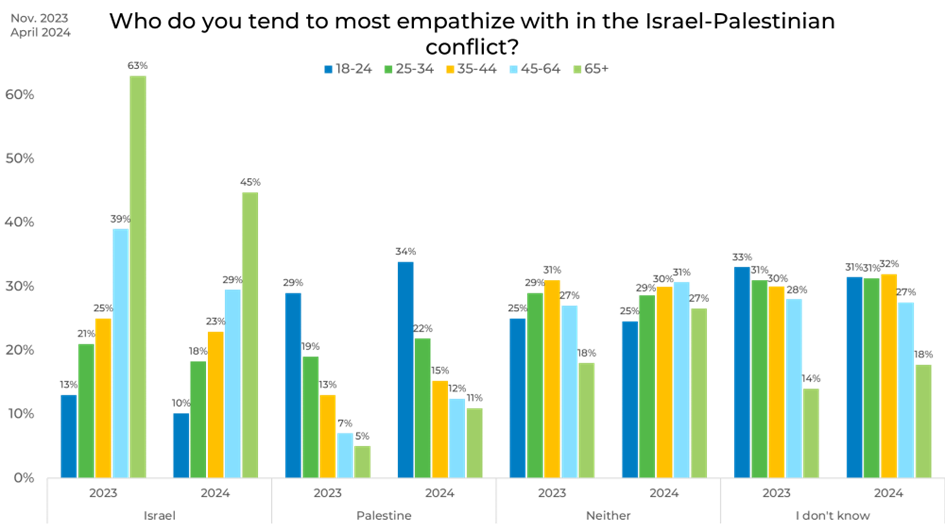
Income
Analyzing the data based on income levels uncovered similar trends we have observed with other demographic breakdowns. The $20,000 - $39,999 income bracket exhibited a 10% decrease in empathy for Israel, while those earning $40,000 - $59,999 had a 5% decline.
Respondents with incomes ranging from $60,000 - $99,999 had an 8% decrease in empathy for Israel and a notable 7% increase for Palestine. The highest earners, those making $100,000 or more, had their empathy for Israel decline by 7% decrease and increase for Palestine by the same amount.
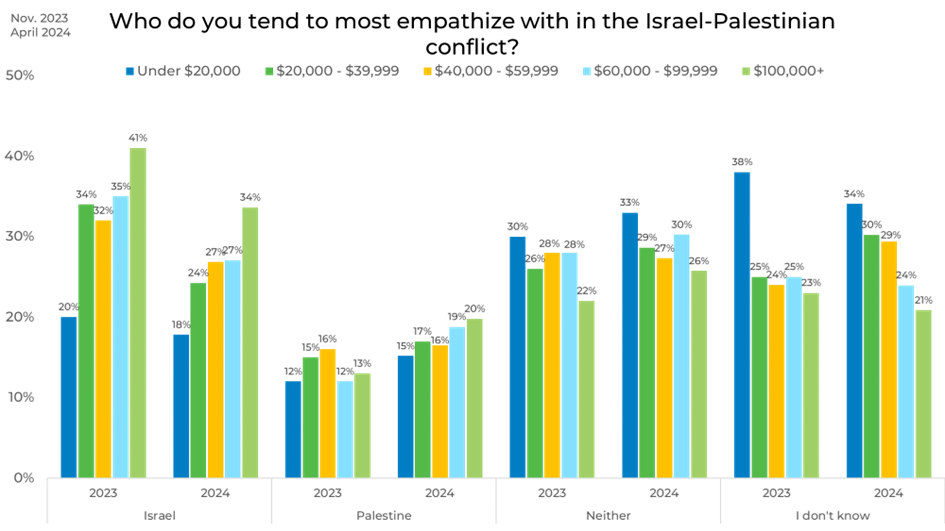
Political Affiliation
The results by political affiliation continue the overall trend we have observed. Republicans' empathy towards Israel has seen an 8% decrease, while their empathy towards Palestine has slightly decreased by 2%. Notably, the proportion of Republicans with no empathy for either side increased by 7%.
Democrats exhibited a more pronounced shift: empathy for Israel saw a 9% decrease, while empathy for Palestine experienced an increase by the same amount.
Independents showed a slightly lower decline in empathy for Israel, with a 7% decrease. Their empathy for Palestine increased by 4%.
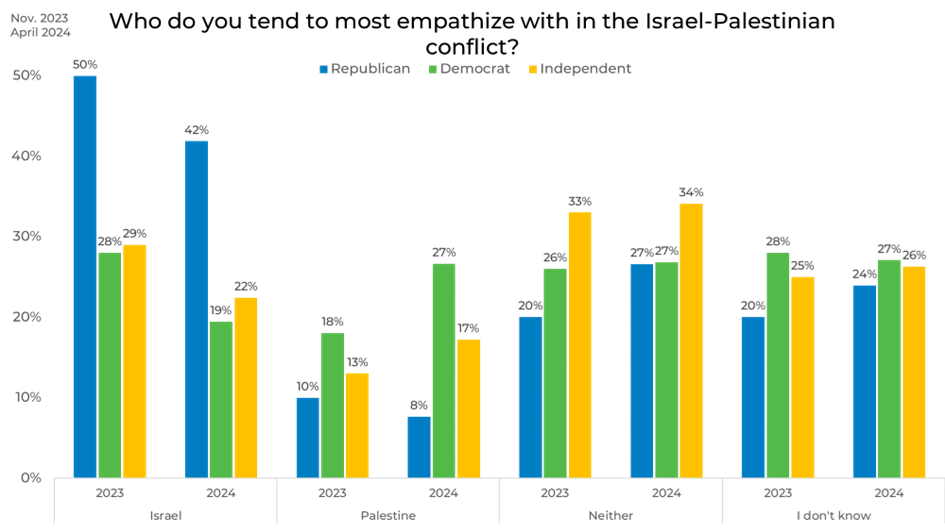
Ethnicity
Analyzing the results by ethnicity, we found that among Caucasian respondents, there's been a substantial decrease of 10% in empathy towards Israel and a 4% increase for Palestine. African American respondents show a 2% decrease in empathy for Israel and a 4% increase for Palestine.
Asian or South Asian participants are the only group where empathy for Israel has actually increased, rising by 4%, although there's a decrease in empathy for Palestine. Hispanic/Latino respondents report a 3% decrease in empathy for Israel, alongside a 7% increase in empathy for Palestine.
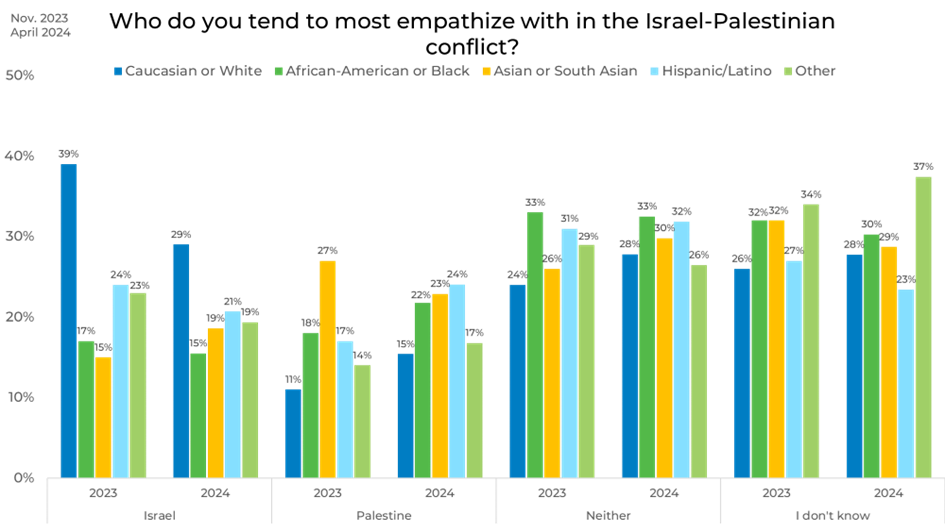
Region
Regional analysis comparing the 2023 results to 2024 revealed intriguing shifts in empathy regarding the Israel-Palestine conflict. Across all regions, there's a downward trend in empathy towards Israel, with the West exhibiting the most significant drop of 11%. Empathy towards Palestine, conversely, has risen in every region, most notably in the West and Midwest, where it increased by 5% in both areas.
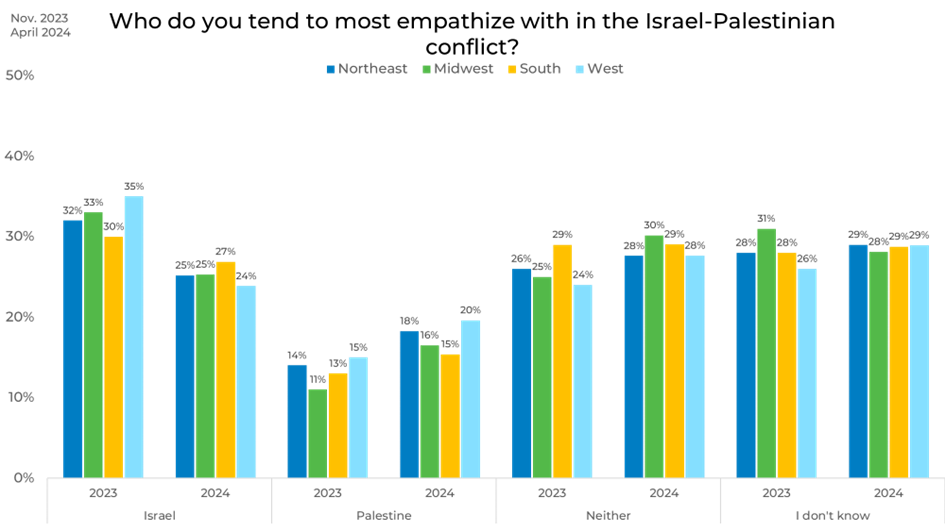
Panel
Finally, breaking down the data by panel, it was found that Panel A's empathy for Israel dropped by 11%, coupled with a substantial 7% increase for Palestine.
In stark contrast, Panel B's empathy for Israel actually increased by 7%, a divergence from the general trend observed in other panels. This panel also showed a 4% rise in empathy for Palestine.
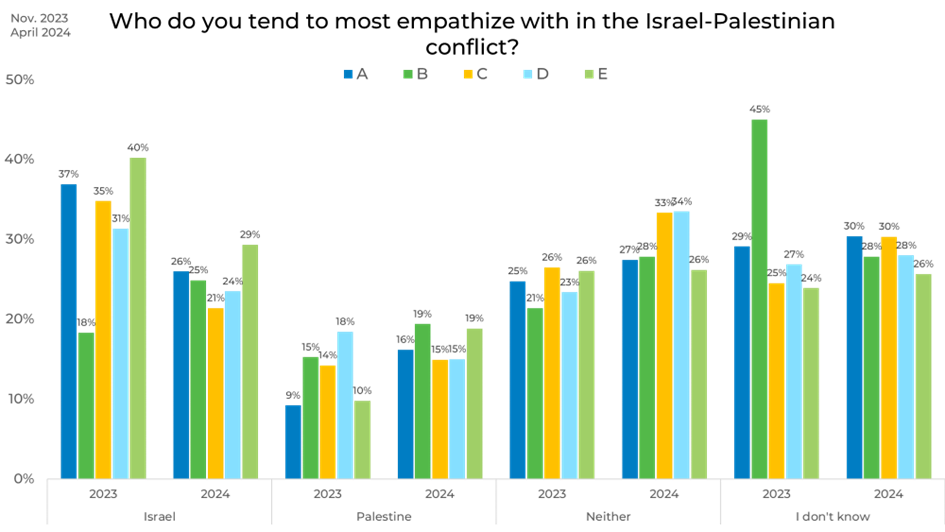
As the results above suggest, attitudes towards the Israel/Palestine conflict can not only vary significantly across demographics and panels, but they also change over time. For example, if you only used Panel E for your study, your results would be skewed with a higher empathy for Israel, whereas all other panels have a decline. That’s why strategic sample blending in research is paramount to avoiding biases inherent within individual panels.
Learn more about panel differences and how they impact your data by downloading our annual report on the sample industry, The Sample Landscape: 2024 Edition.





